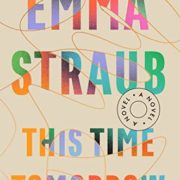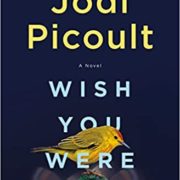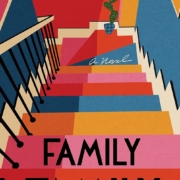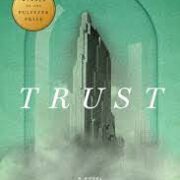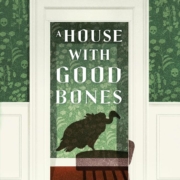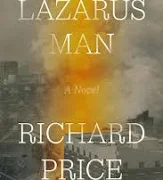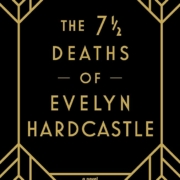Crossroads by Jonathan Franzen
If you are of a certain age, you may recall Jonathan Franzen, even if you have yet to read his work. Think back to 2001, when Oprah selected Franzen’s The Corrections for her book club. This made the literary author decidedly uncomfortable. He publicly stated he considered himself from the “high-art literary tradition” and that so many of Oprah’s selections were “schmaltzy” and “one-dimensional.” Displeased, Oprah promptly disinvited Franzen from appearing on her show. The story became fodder for cable news, so Franzen’s book sales were still assured. (An excellent novel, it would go on to win the National Book Award.)
His latest novel, Crossroads approaches masterpiece status. Franzen is brilliant and has clearly honed his writing so as to jettison what many thought were elements of a show-off from his earlier novels. Still, it’s not for everyone, and I’m not sure it was for me.
It is set in a fictional suburb of Chicago in the early 1970s, Russ and Marion Hildebrandt have four kids, their ages running the gamut. Russ is an associate minister who has been reassigned within his church after being ousted as head of the youth group he created, Crossroads. To add to his humiliation, two of his children subsequently join the group. Russ, who wants nothing to do with his wife, is pursuing a widowed church member; it’s somewhat comedic while simultaneously being all-the-way sad.
Each of the children is struggling in their own way. Clem, away at college, is about to drop out so as to attempt enlistment in the Vietnam War. Becky, as popular as they get in high school, is becoming increasingly intrigued with the counterculture. Then we have Perry, a high school sophomore, a genius, a drug dealer, and an addict. His “manner is seemingly forthright and respectful but somehow neither.”
Perry joins Crossroads as a contrivance, emoting in group sessions. “Because it was a game, he was good at it, and although intimacies achieved by game-theoretical calculation were hard to feel great about, he sensed that other people were genuinely moved by his emotional displays.” Becky sees through his ploy and promptly calls him out for not only manipulating the group but for also being a borderline loathsome person.
Marion, who has her own history of mental illness, is certainly worried for Perry’s mental well-being and for good reason. Russ, meanwhile, has delusions of grandeur by thinking he can save some Navajo land. Yet this is the same guy whose family is disintegrating right before his blinkered eyes.
In his novels, Franzen takes it to Midwesterners. (He was raised in St. Louis.) For all the mainstream “dontcha know” and “whelp!” jokes that are supposed to underscore some sort of Midwestern innocence, Franzen has consistently hit back with a grimmer take, where repressed feelings are dangerously mixed with silent hatreds; add, too, the prevalence of drug use (think methamphetamine).
But this is not to say that Crossroads is a satire on Midwestern church families. The characters are going through genuine moral crises. Treating them with care, Franzen makes their respective anguishes real.
Maybe all too real for this reviewer. Make no mistake, Franzen is in top form as his intellect fully surrounds the characters he builds and then topples. Make no mistake, too, you feel the characters’ plight. Franzen’s writing makes sure of that. It’s as though you’re lying down on the grass on the most pleasant of days, hands behind your head, watching the clouds pass by for hours. It’s gorgeous in its own way, with its grand unfurling. But every now and then you come across a thunderclap that emphasizes the devastation. Here’s Clem asking Russ: “Do you have any idea how embarrassing it is to be your son?”
Readers of John Updike will perhaps be reminded of In the Beauty of the Lilies, a gorgeous multi-generational novel, where the reader sees how one decision made by one person from one generation affects the next. There’s certainly an Updikean feel to “Crossroads.” However, here, the family members live their lives in one uneasy swirl and it’s an unnerving slow bleed (albeit humorous at times).
Apparently, Crossroads is the first of a planned trilogy entitled “A Key to All Mythologies.” (Readers of George Eliot’s Middlemarch will probably recognize the reference.) Knowing this, I’ll possibly give the second volume a go. For while I found Crossroads wrenching, there is hope for the Hildebrandts.
There’s plenty of hurt that results in various family fissures, yet they don’t give up on each other. Plus, Russ finally sees it: Sometimes we err and err badly, but we keep trying. “Turning and turning,” he says. “Until by turning and turning we come around right.”
Find in Catalog


